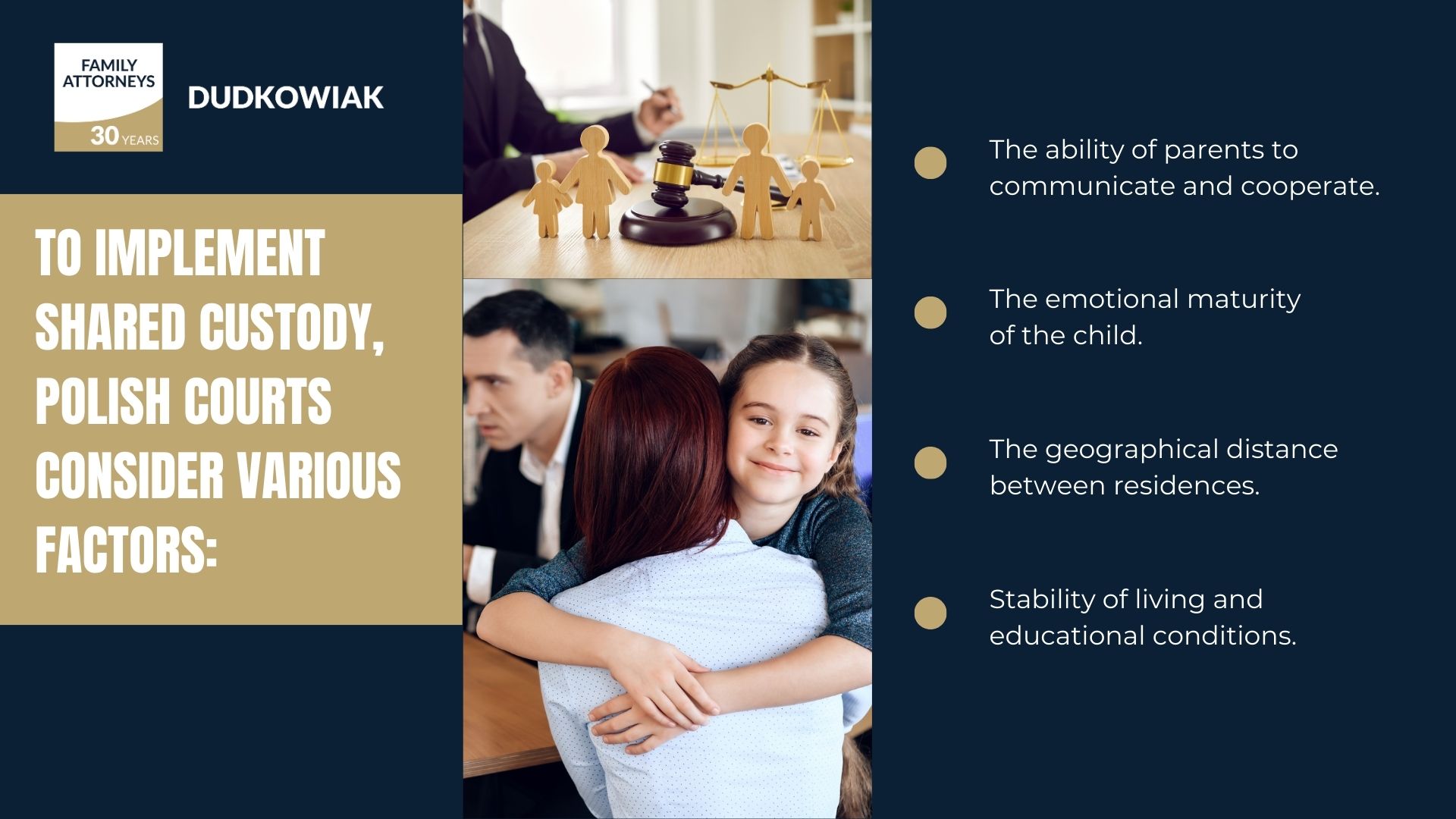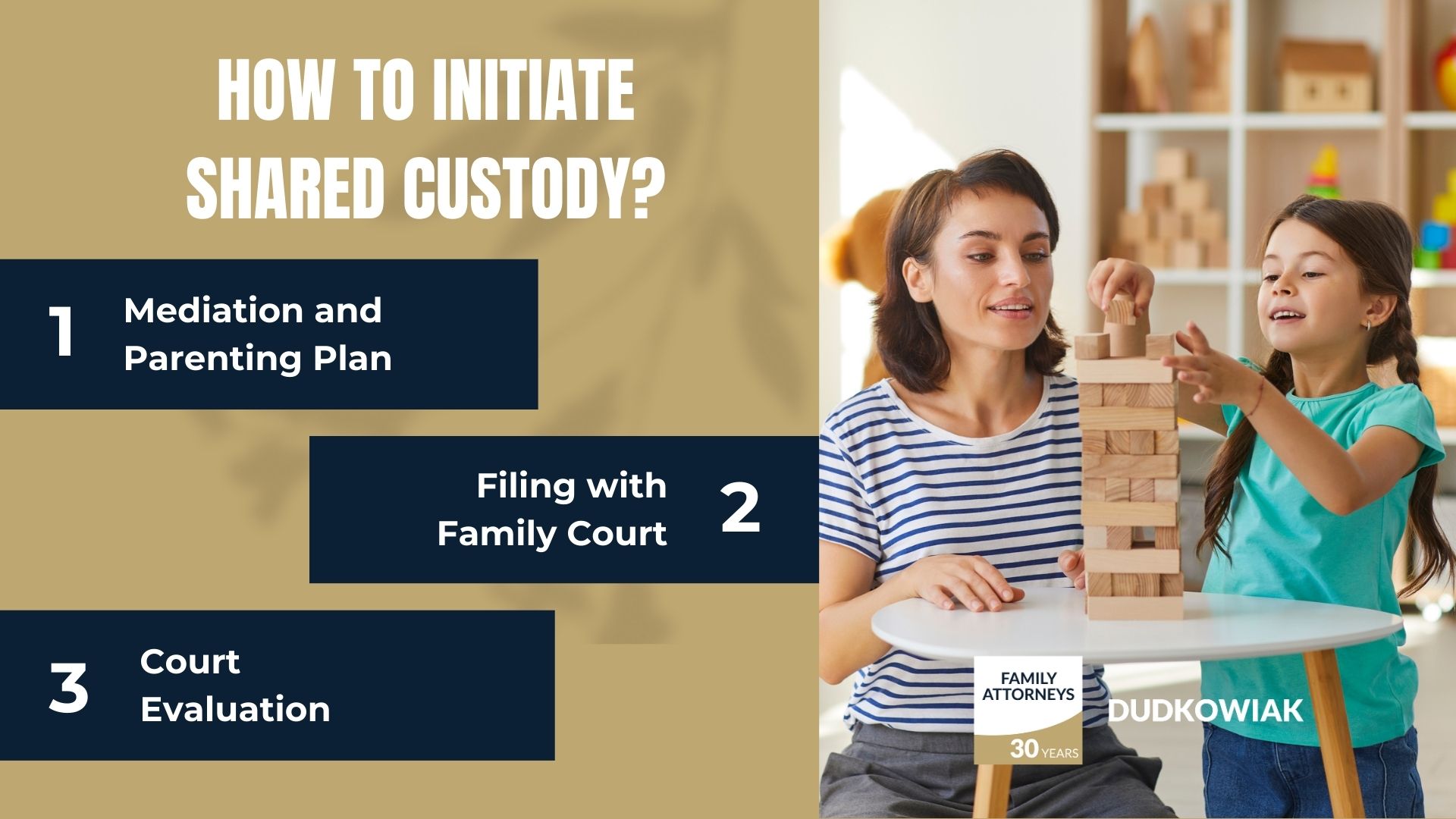Shared Custody in Poland
What is shared custody?
Shared custody, or alternating custody, is a legal arrangement in which a child lives with each parent in turns, according to a court-approved schedule. Though not explicitly defined in Poland’s Family and Guardianship Code, it has increasingly been recognized in jurisprudence and legal practice.
In essence, the child alternates residence – commonly weekly or bi-weekly – between both parents, who share equal parental responsibilities. This system promotes continuous involvement of both parents, provided it serves the child’s best interest.
Under what conditions do Polish courts grant shared custody?
To implement shared custody, Polish courts consider various factors:
- The ability of parents to communicate and cooperate.
- The emotional maturity of the child.
- The geographical distance between residences.
- Stability of living and educational conditions.
Although courts can grant shared custody without the consent of both parents, they typically favor arrangements where parents submit a jointly developed parenting plan. For detailed procedures on establishing custody, including drafting such plans, refer to the Contact with child section on the Dudkowiak Family Lawyers website.

What are the benefits and challenges of shared custody?
Benefits of shared custody:
- Maintains strong emotional bonds with both parents.
- Encourages joint decision-making.
- Can promote emotional stability and security in the child’s life.
Challenges include:
- Requiring high levels of cooperation and communication between ex-partners.
- Potential logistical complications (e.g., school, commuting).
- Emotional adaptation for the child due to changing environments.
Before pursuing this route, it’s essential to assess whether both households can provide consistent routines and a stable, nurturing atmosphere.
How to Initiate Shared Custody?
1. Mediation and Parenting Plan
Ideally, parents first agree on a detailed parenting plan covering custody schedules, education, holidays, and financial matters. Legal professionals like Dudkowiak Family Lawyers can assist in negotiations and formalizing terms.
2. Filing with Family Court
If agreement isn’t reached, a formal court petition must be submitted. Supporting documents may include:
- A proposed parenting plan.
- Documentation showing stable housing, income, and support structure.
- Evidence of past parental involvement.
3. Court Evaluation
Judges review parental cooperation, living standards, and the child’s welfare. Importantly, the court may disregard deliberate reductions in income or lifestyle changes that aim to manipulate custody outcomes. It is possible to request at court to order a psychological evaluation of the family bonds by the court’s experts. For further guidance, read about Court Proceedings in Family Cases.

Shared Custody and Alimony
Contrary to a common misconception, shared custody does not automatically eliminate child support obligations. Courts assess:
- The financial capabilities of each parent.
- The proportion of time the child spends with each parent.
- Additional costs such as medical, extracurricular, and educational expenses.
More on adjusting or reducing maintenance under shared custody is explained in the Maintenance section of the Dudkowiak Family Lawyers website.
Is shared custody right for your family?
Shared custody is a viable and often beneficial structure for families post-divorce or separation – but it demands mutual respect, flexibility, and a child-centered approach. If you are considering shared custody or need to adjust an existing arrangement, legal counsel ensures your parental rights and your child’s best interests are protected.
To learn more about legal services related to custody, contact the experienced team at Dudkowiak Family Lawyers.


